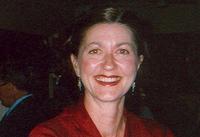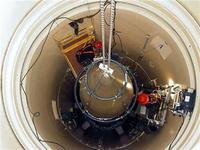-
Transfer of knowledge learned key to improving science education
Attendees of a workshop at the annual meeting of the American Association for the Advancement of Science were immersed into “active learning,” an approach inspired by national reports targeting U.S. science education in general, and, more specifically, the 60 percent dropout rate of students in science, technology, engineering and mathematics (STEM). The workshop focused on how science students learn material, but, more importantly, how well they transfer the concepts they have learned into their next class — in the same or a different discipline — or into their jobs.
-
-
Online 3D immersive learning environments to boost kids’ science skills
For the first time, a new online 3D educational world which replicates real life environments is set to improve the science skills of students. Using their avatar, students will embark on a journey from their own research lab through and “immersive learning” environments which will mirror real-life places. As they progress through quests, they will explore the surrounding environment and complete inquiry based learning tasks which test their core science skills and gain rewards.
-
-
Math is important but should it be compulsory?

There was much discussion recently about making it compulsory for year 12 students in New South Wales, Australia to study some mathematics. Over the past ten years at least, the total proportion of students studying Year 12 math has remained stable at around 80 percent, but the trend around the country has been for students studying math to take lower levels of math. The problem of declining math skills is complex and its solution will not be easy, quick or as straightforward as making math compulsory. At the very least the solution will require qualified math teachers in all math classrooms, an engaging curriculum that has clear relevance to the multitude of pathways that students might pursue, including trades and business as well as science, and clear statements from colleges and universities detailing the essential prerequisites that students require for their programs.
-
-
U.S. Navy probes exam cheating at school for nuclear power reactor operator
Yet another military service is facing allegations of exam-cheating. Earlier this year, the U.S. Air Force launched a probe into a cheating scandal involving about 100 officersat Malmstrom Air Force Base, Montana, who are responsible for maintaining and operating land-based nuclear missiles. Now the U.S. Navy is investigating about one-fifth of its trainers at the school for naval nuclear power reactor operators in Charleston, South Carolina. The sailors are accused of cheating on written tests required to obtain certification as instructors at the nuclear propulsion school.
-
-
Social networking makes us smarter now, but more stupid in the long run

Does improved connectivity to other people through social networks makes us smarter or more stupid? Some say that connectivity allows us acquire information from other people as well as by direct experience. Many pundits say that in the Internet era, in which we have access to a diversity of information, humankind will learn to make more informed decisions. Others, however, suggest having so much information at our fingertips will limit our ability for concentration, contemplation, and reflection. Controlled tests show that both arguments are correct – but on different tike scales: Being able to copy from other people in vast networks means analytical responses rapidly spread – but only by making it easy and commonplace for people to reach analytical response without engaging analytical processing. The researchers conclude that this tendency to copy without thinking “can explain why increased connectivity may eventually make us stupid by making us smarter first.”
-
-
New state-of-the-art cybersecurity resource available to software developers
Cybercrime is booming; it is an estimated $100 billion industry in the United States and shows no signs of slowing down. Attackers have an arsenal of weapons at their disposal, including social engineering — or phishing — penetrating weak security protocols and exploiting software vulnerabilities that can serve as an “open window” into an organization’s IT environment. Closing those windows requires effective and accessible tools to identify and root out software vulnerabilities. Supported by a $23.4 million grant from DHS’s Science and Technology Directorate (S&T), the Software Assurance Marketplace, or SWAMP, provides a state-of-the-art facility that serves as an open resource for software developers, software assurance tool developers, and software researchers who wish to collaborate and improve software assurance activities in a safe, secure environment.
-
-
Florida mulling banning school collection of students’ biometric information
Some school districts in Florida, including Polk County and Pinellas County, are using scanners to collect fingerprints and hands, eyes, and voice characteristics from students. Pinellas County school district allows students to use palm scans instead of cash to pay for meals in the cafeteria. The collection of students’ biometric information has alarmed many parents who are concerned that students’ identity or personal records may be stolen or sold to private companies. Florida state legislators are debating a proposal which would stop school districts from collecting biometric information from students.
-
-
National cyber complex to open next to Ben-Gurion University of the Negev campus
A new national cyber complex called CyberSpark will open at the Advanced Technology Park (ATP) which is located next to Ben Gurion University of the Negev. Fortune 500 companies Lockheed Martin and IBM announced they would invest in CyberSpark R&D facilities, joining other cybersecurity leaders Deutsche Telekom, EMC, RSA, and many startups. The 15-building ATP is the only type of complex of its kind in the world that includes Fortune 500 companies and cyber-incubators, academic researchers, and educational facilities as well as national government and security agencies. The CyberSpark will also include a high school geared toward science and technology.
-
-
Cal Poly unveils ambitious cybersecurity educational initiative
Cal Poly, with a grant from the Northrop Grumman Foundation, has established a Cybersecurity Center, opened a new cyber lab, and is developing a cybersecurity curriculum with an ambitious set of goals in mind: educating thousands of students in cybersecurity awareness and readiness; producing experts in cyber technologies and systems, including many professionals who will serve the military and defense industry; and graduating cyber innovators who are prepared for advanced study and applied research in emerging cyber issues.
-
-
USAF nuclear-missile officers alleged to have regularly cheated on readiness tests

Three former U.S. Air Force officers have alleged that USAF officers responsible for operating nuclear-armed missiles at Malmstrom Air Base in Montana have, for many years, been cheating on monthly readiness tests, and were never punished for it. The former officers claim that cheating is the norm and that officers who did otherwise are the exception.The officers who made the allegations added, though, that misconduct on tests did not impair the safety of the nuclear weapons or the Air Force’s ability to launch missiles if ordered.
-
-
New York mulling first U.S. college dedicated to homeland security studies
Political, educational, and law enforcement leaders in New York are actively exploring the idea of creating pro the U.S. first college focused on emergency management and homeland security on the Syracuse University (SU) campus. “Believe it or not, there is no such college,” Governor Andrew Cuomo said during his fourth State of the State address two weeks ago. “I believe this is a field that is only going to grow. Unfortunately, it’s only going to get worse. And we want this college right here in the state of New York, training our people and training others from around the country.”
-
-
Old twin primes conjecture puzzle soon to be resolved
Several centuries ago, the twin primes conjecture was formulated. As its name indicates, this hypothesis, which many science historians have attributed to the Greek mathematician Euclid, deals with prime numbers, those divisible only by themselves and by one (2, 3, 5, 7, 11, etc.). Under this assumption, there exists an infinite number of pairs of prime numbers whose difference is two, called twin primes (for example, 3 and 5), but nobody has been able to confirm this so far. In April 2013, the University of New Hampshire mathematician showing that you will never stop finding pairs of primes separated by at most 70 million. Now, a postdoctoral student at Université de Montréal’s Center for Mathematical Research went even further, reducing the gap to 600. This represents a huge step forward in the quest to establish the twin primes conjecture and revives a long-standing question that has not progressed in years.
-
-
Spreading STEM learning opportunities in the San Diego area
UC San Diego and the San Diego region more broadly are well known for strength in STEM— or science, technology, engineering, and mathematics — education. There are numerous STEM pipeline outreach efforts already underway. What has been missing and needed, however, is coordinated and systematic action to spread learning opportunities and to plug “leaks” in the K-20 pipeline to STEM skills, degrees, and careers. The STEM Success Initiative aims to gather community and university resources to lift the region’s K-20 STEM education. The STEM Success Initiative has been launched by the Center for Research on Educational Equity, Assessment and Teaching Excellence (CREATE) at UCSD.
-
-
Thinking outside the box: Free public education that pays for itself
A U.K. researcher proposes an innovative way to pay for college and graduate education: students would not pay for their education while at school. Rather, they will commit to paying a fixed percentage of their income (say, 6 percent) during their prime earning years (35-54, for example) to the university that awarded their degree. These student promises for a given university cohort will be bundled and sold to investors as “education securities.” Investors would receive a share of the average income for the cohort. Because average income moves with inflation, investors would be assured of getting their initial investment back plus whatever amount is necessary to cover changes in the value of their money. The securities could even be designed to include a real return (over inflation) of as much as 3 percent.
-
-
U.S. educational system does not help gifted children reach their full potential
Gifted children are likely to be the next generation’s innovators and leaders — yet the exceptionally smart are often invisible in the classroom, lacking the curricula, teacher input, and external motivation to reach full potential. This conclusion comes as the result of the largest scientific study of the profoundly gifted to date, a 30-year study conducted by Vanderbilt University researchers. The researchers tracked 300 gifted children from age 13 until age 38, logging their accomplishments in academia, business, culture, health care, science, and technology.
-
- All
- Regional
- Water
- Biometrics
- Borders/Immig
- Business
- Cybersecurity
- Detection
- Disasters
- Government
- Infrastructure
- International
- Public health
- Public Safety
- Communication interoperabillity
- Emergency services
- Emergency medical services
- Fire
- First response
- IEDs
- Law Enforcement
- Law Enforcement Technology
- Military technology
- Nonlethal weapons
- Nuclear weapons
- Personal protection equipment
- Police
- Notification /alert systems
- Situational awareness
- Weapons systems
- Sci-Tech
- Sector Reports
- Surveillance
- Transportation
Advertising & Marketing: advertise@newswirepubs.com
Editorial: editor@newswirepubs.com
General: info@newswirepubs.com
2010-2011 © News Wire Publications, LLC News Wire Publications, LLC
220 Old Country Road | Suite 200 | Mineola | New York | 11501
Permissions and Policies
Editorial: editor@newswirepubs.com
General: info@newswirepubs.com
2010-2011 © News Wire Publications, LLC News Wire Publications, LLC
220 Old Country Road | Suite 200 | Mineola | New York | 11501
Permissions and Policies
